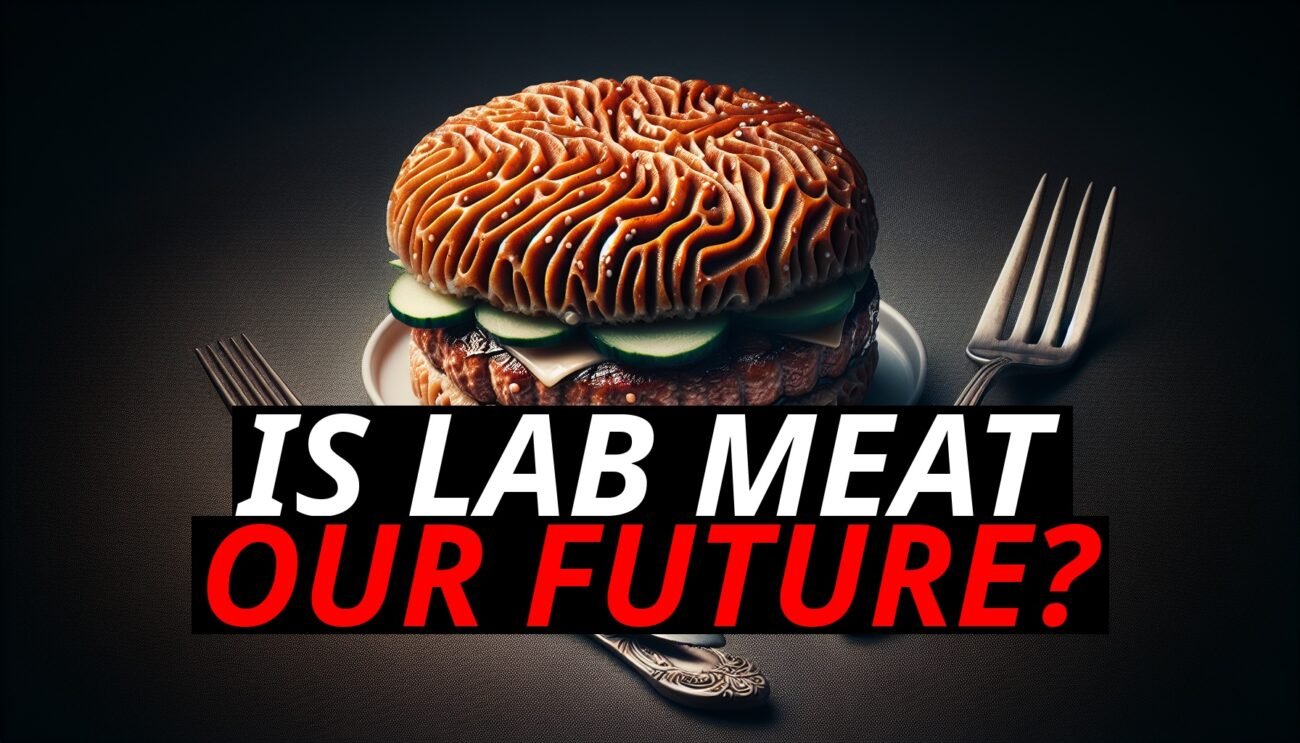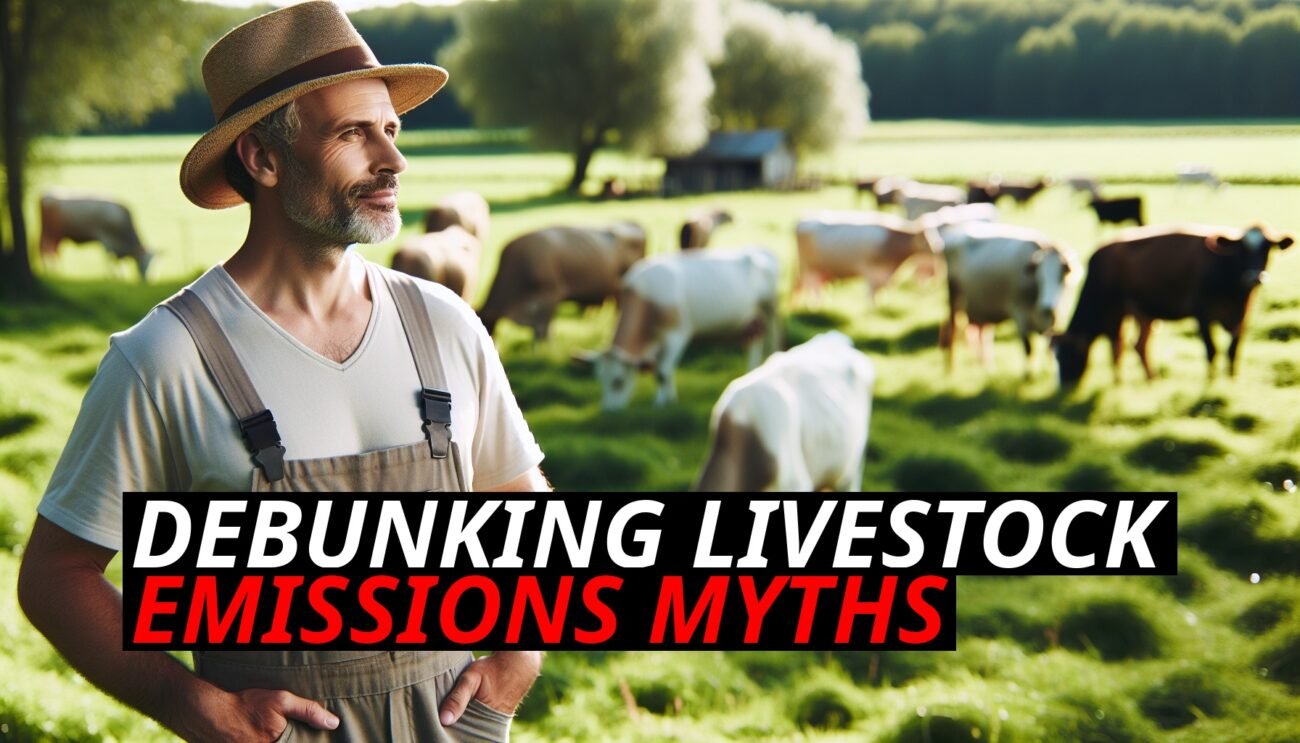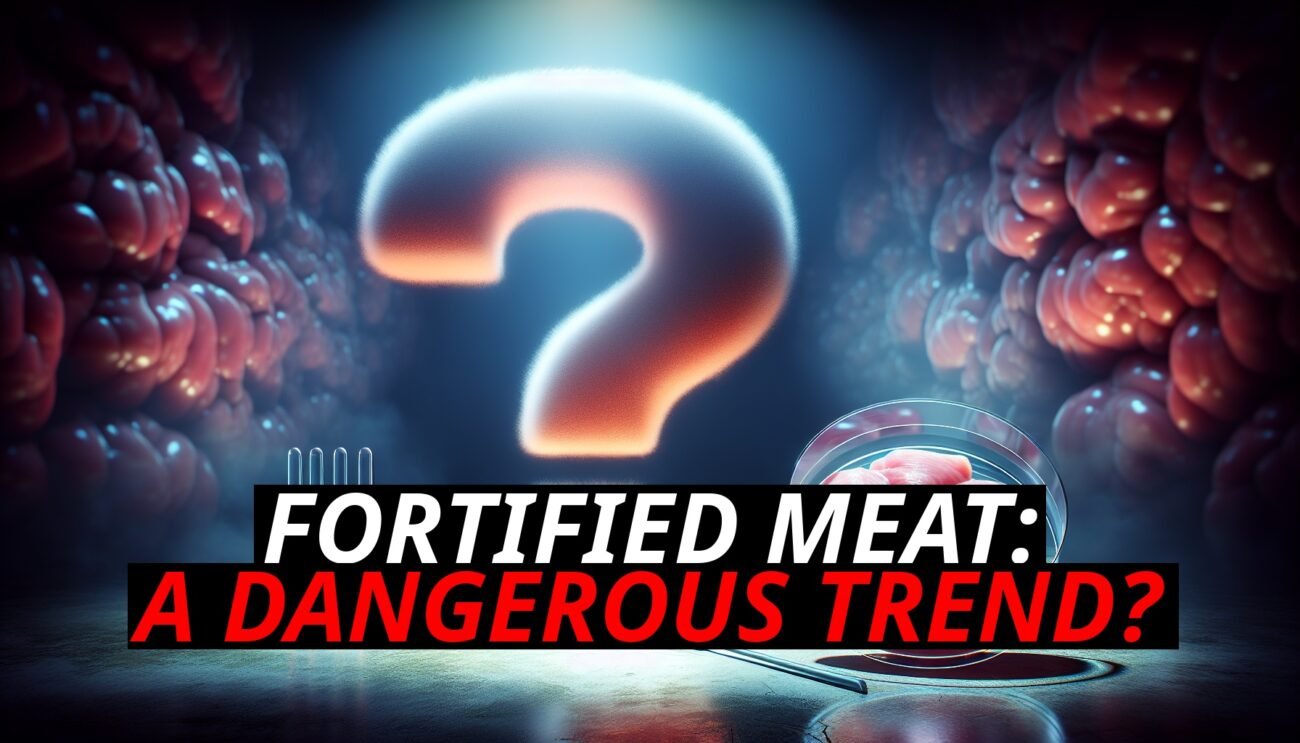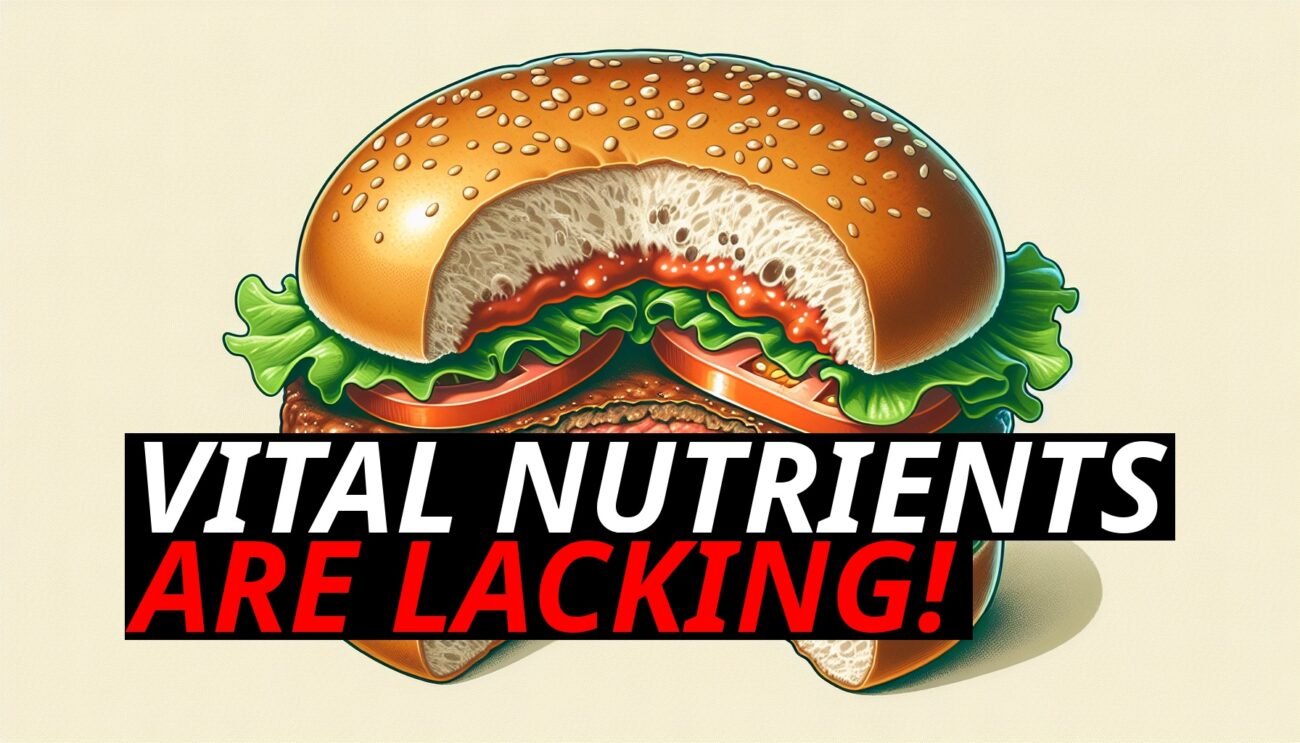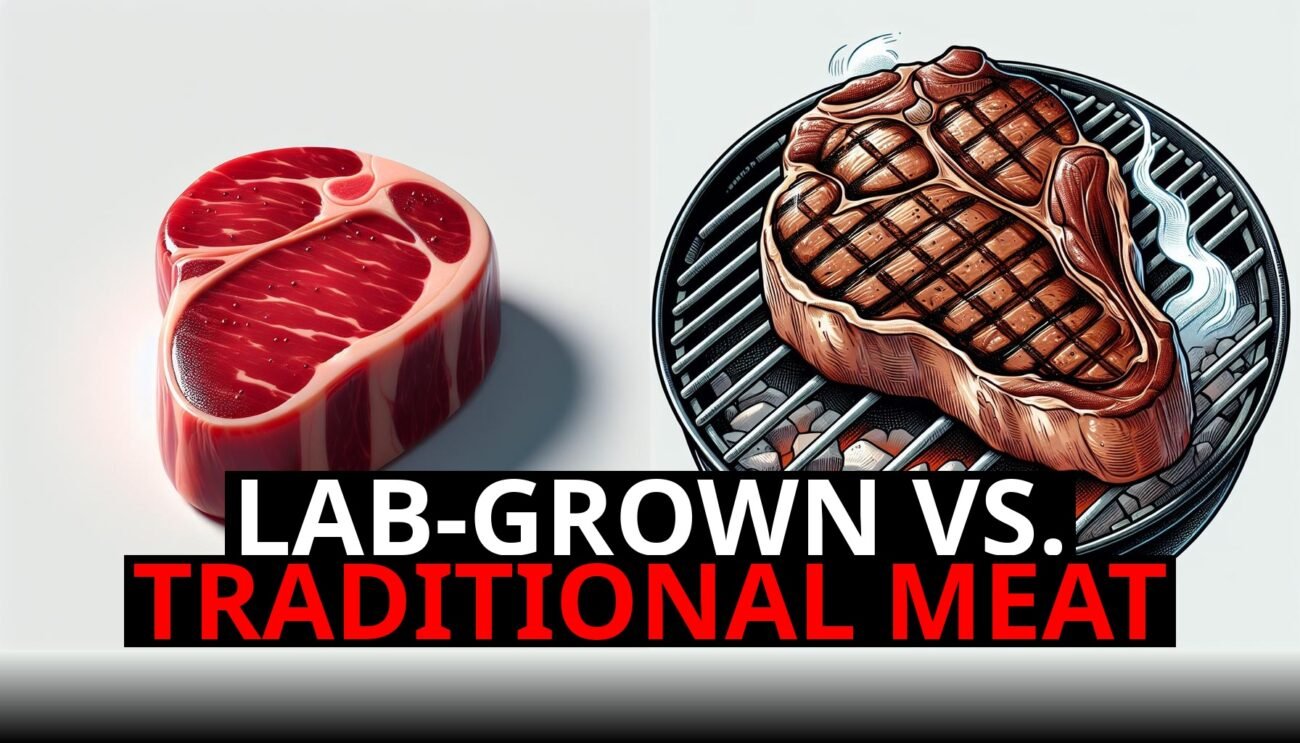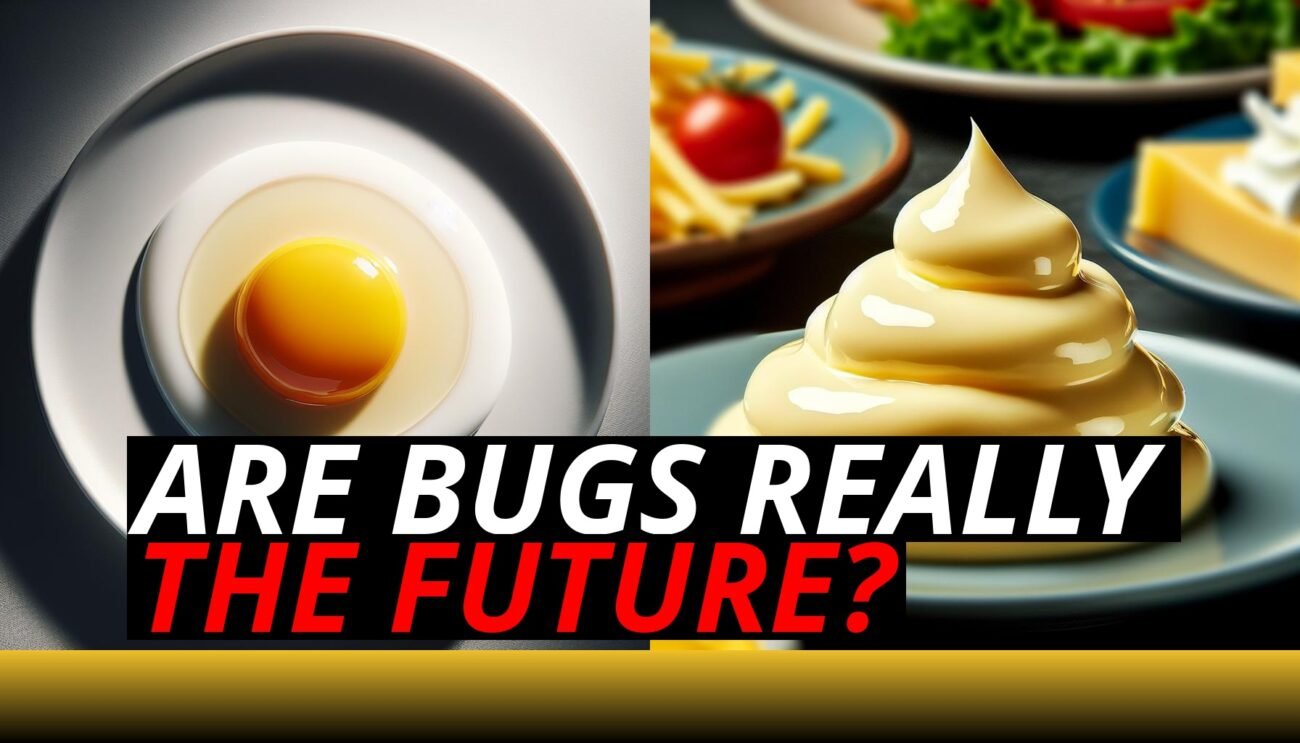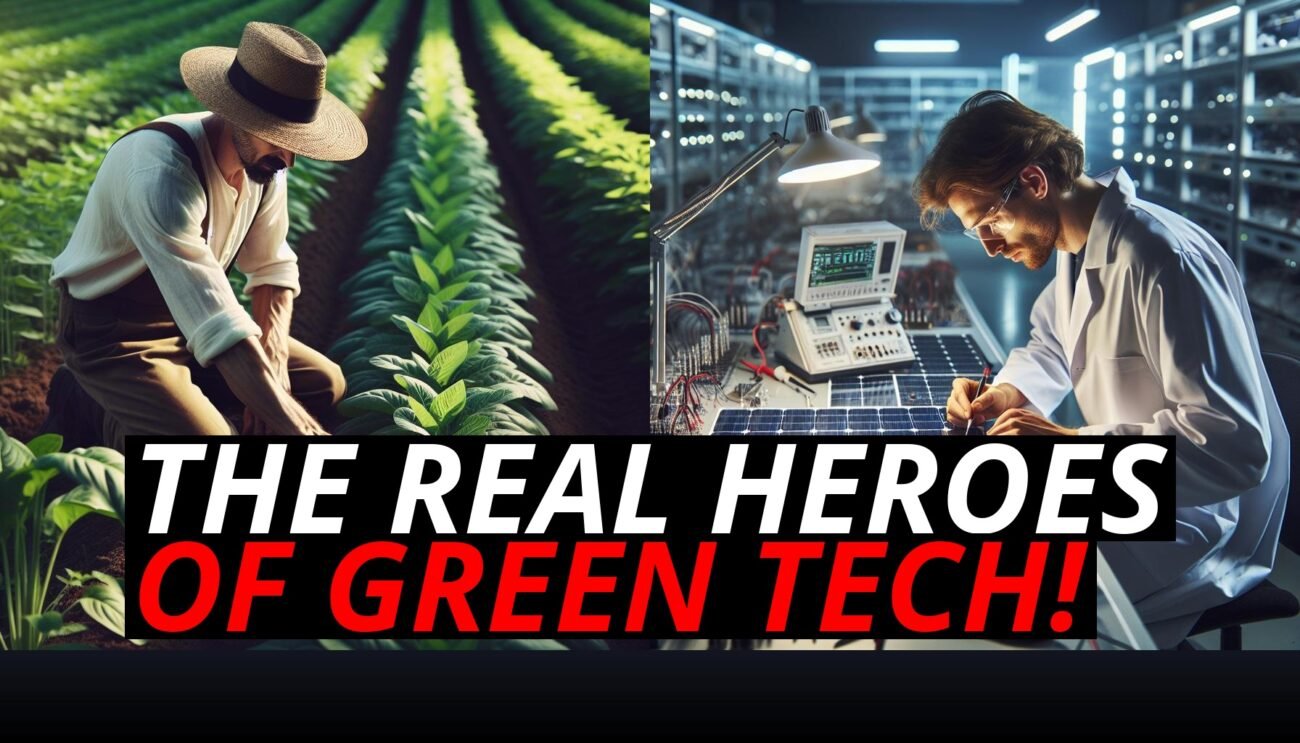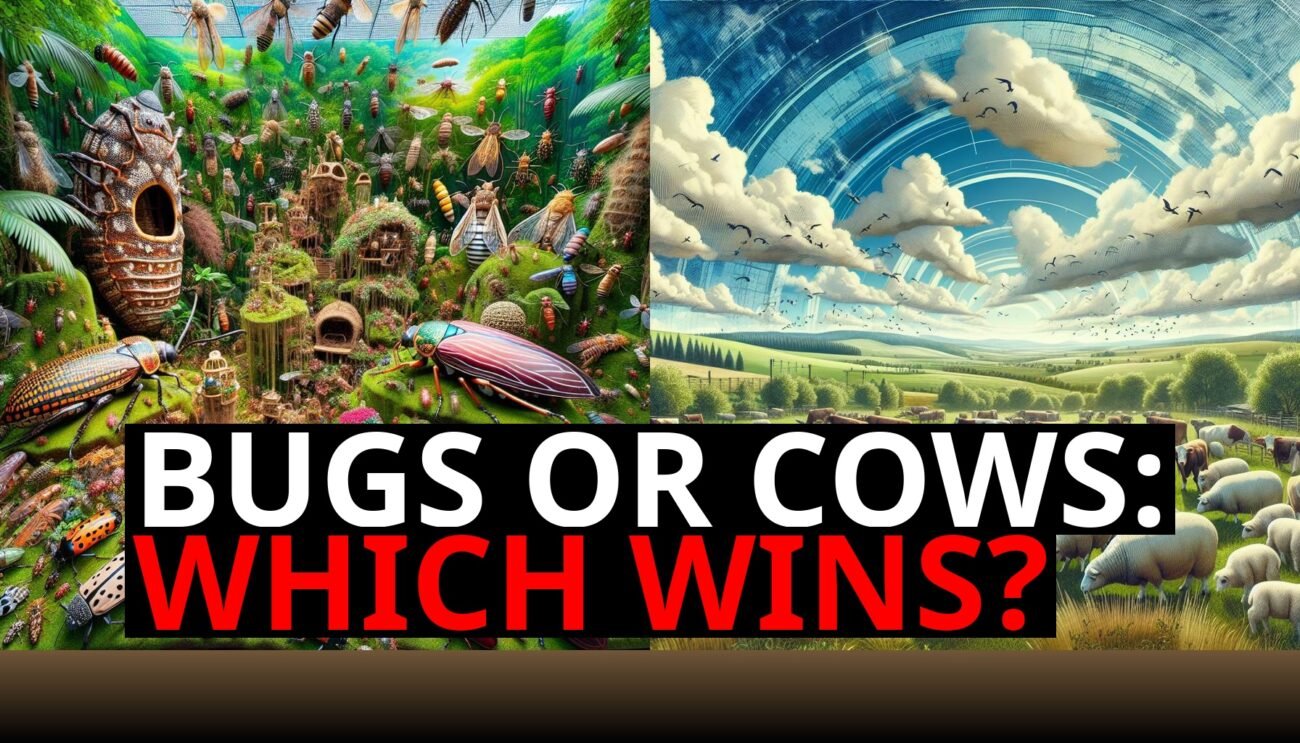Imagine dedicating your life to a plant-based diet, believing that by doing so, you’re helping to save the planet and improve your health. But what if the reality isn’t so simple? As more people adopt vegan lifestyles, a growing number of them are beginning to experience a mental conflict between the ideals they hold dear and the stark realities of what a vegan diet entails—environmentally, nutritionally, and ethically. The truth is, veganism may not be as sustainable as it’s often portrayed, and the cognitive dissonance surrounding plant-based diets is leading many to question whether they’re truly making a positive impact.
The Environmental Myth: Monocropping And Its Hidden Costs
One of the central pillars of veganism is the belief that it’s better for the environment. After all, raising animals for food requires land, water, and energy, right? So by eliminating animal products and focusing on plant-based foods, vegans aim to reduce their environmental footprint. However, there’s a significant flaw in this argument: the environmental costs of monocropping.
Monocropping is the agricultural practice of growing a single crop, such as soy, wheat, or corn, over vast areas of land year after year. These crops are the backbone of many plant-based diets, serving as the base for everything from tofu to plant-based burgers. But while monocropping may seem efficient, it’s wreaking havoc on the environment in ways that are often overlooked:
- Soil Degradation: Monocropping depletes the soil of its nutrients, leading to soil erosion and the loss of arable land. Without crop diversity, the soil doesn’t have time to recover, forcing farmers to rely on synthetic fertilizers to maintain yields.
- Pesticide Use: Because monocrops are more vulnerable to pests and disease, they require heavy doses of pesticides and herbicides. These chemicals not only pollute the soil and water but also harm local ecosystems, threatening biodiversity.
- Biodiversity Loss: Large-scale monocropping destroys natural habitats and leads to the decline of species that rely on a diverse environment. Fields of soy or corn as far as the eye can see may feed millions of vegans, but they also contribute to the extinction of wildlife that once thrived in those areas.
For vegans who care deeply about the environment, these harsh realities can create a cognitive dissonance—a mental conflict between their desire to do good and the unintended harm their food choices may cause. While the intention behind veganism is noble, the impact of monocropping is often far from sustainable.
The Health Impact: Processed Plant Foods And Nutrient Deficiencies
Another key belief driving veganism is that it’s the healthiest choice for the human body. Vegans often cite the supposed benefits of plant-based diets, such as reduced risk of heart disease, lower cholesterol, and improved weight management. However, this narrative overlooks the significant health challenges that many vegans face, particularly when it comes to nutrient deficiencies and the reliance on processed plant foods.
While whole, natural plant foods like fruits, vegetables, and legumes can certainly play a role in a healthy diet, many vegans turn to highly processed plant-based products to replace the nutrients they miss from animal foods. These products—like plant-based burgers, meat substitutes, and fortified foods—are often packed with artificial ingredients, preservatives, and added sugars, which can negate the health benefits of a plant-based diet.
Moreover, certain essential nutrients are simply more difficult to obtain from plant-based sources:
- Vitamin B12: Critical for nerve function and the production of red blood cells, B12 is found almost exclusively in animal products. Vegans must rely on supplements or fortified foods to avoid deficiency, which can lead to fatigue, cognitive issues, and even permanent nerve damage.
- Iron and Zinc: While plant-based foods contain iron and zinc, they are often in less bioavailable forms, meaning the body has a harder time absorbing them. This can lead to deficiencies that cause weakness, immune problems, and other health issues.
- Omega-3 Fatty Acids: Essential for brain health and reducing inflammation, omega-3s are found in their most effective forms (EPA and DHA) in fatty fish. While some plant-based sources contain omega-3s, the body must convert them into usable forms, which is an inefficient process.
For vegans who prioritize their health, this creates yet another cognitive dissonance—they may feel they’re making the healthiest choice, but without careful planning and supplementation, they could be putting themselves at risk for nutrient deficiencies.
The Ethical Dilemma: Processed Foods And Corporate Interests
Ethics are at the heart of the vegan movement. Vegans often adopt the diet out of compassion for animals, rejecting factory farming and the suffering it causes. But the reality of a plant-based lifestyle, particularly one that relies on processed foods, brings with it a new ethical challenge.
The rise of plant-based food products has been fueled by corporate interests. Major food companies have capitalized on the growing demand for vegan-friendly products by producing a wide range of ultra-processed foods. These products are often designed to mimic the taste and texture of meat but are made from highly processed ingredients like soy protein isolates, artificial flavorings, and added sugars.
The ethical question arises: is it truly better to support industries that produce processed, factory-made plant foods rather than those that raise animals in ethical, regenerative ways? For vegans who care deeply about the welfare of animals and the environment, supporting large-scale food corporations that prioritize profits over sustainability can create a significant moral conflict.
In contrast, the carnivore movement emphasizes the importance of consuming whole, unprocessed animal foods, often sourced from small farms that practice regenerative agriculture. These farms use livestock grazing techniques that improve soil health, increase biodiversity, and sequester carbon, offering a more ethical and sustainable alternative to factory farming and monocropping.
Facing The Cognitive Dissonance: Can Veganism Live Up To Its Ideals?
For many vegans, confronting the realities of monocropping, processed foods, and nutrient deficiencies can create a mental struggle—how can they reconcile their ethical, environmental, and health goals with the facts that don’t align with their beliefs?
The truth is, no diet is perfect, and all food choices come with trade-offs. However, the cognitive dissonance of veganism lies in the gap between its idealized vision and the practical realities of the food system. While vegans aim to reduce harm, their reliance on monocropped plants, processed foods, and supplements suggests that the diet may not be as sustainable or ethical as it’s often portrayed.
The Carnivore Alternative: A Simpler, Sustainable Approach?
The carnivore diet, which focuses on animal-based nutrition from whole, unprocessed foods, is often seen as the polar opposite of veganism. But for some, it offers a solution to the cognitive dissonance experienced by vegans. By consuming nutrient-dense animal products from regenerative farms, carnivores can avoid the environmental destruction of monocropping, the health risks of nutrient deficiencies, and the ethical concerns surrounding processed foods.
Regenerative agriculture, which is integral to many carnivore diets, uses livestock grazing to restore ecosystems, improve soil health, and sequester carbon, offering a more sustainable and ethical way to produce food. In this way, the carnivore approach challenges the conventional wisdom that plant-based diets are the only path to sustainability and ethical eating.
Conclusion: Rethinking Sustainability In Our Diets
The cognitive dissonance of veganism stems from the conflict between its noble ideals and the reality of its impact on the environment, health, and ethics. While plant-based diets may seem like the answer to modern problems, the truth is far more complex. Monocropping, processed foods, and nutrient deficiencies all point to the limitations of a plant-based lifestyle.
For those looking to reduce their environmental impact, improve their health, and make ethical food choices, it may be time to rethink what sustainability really means—and consider the role that animal-based nutrition and regenerative farming can play in creating a truly sustainable future.


